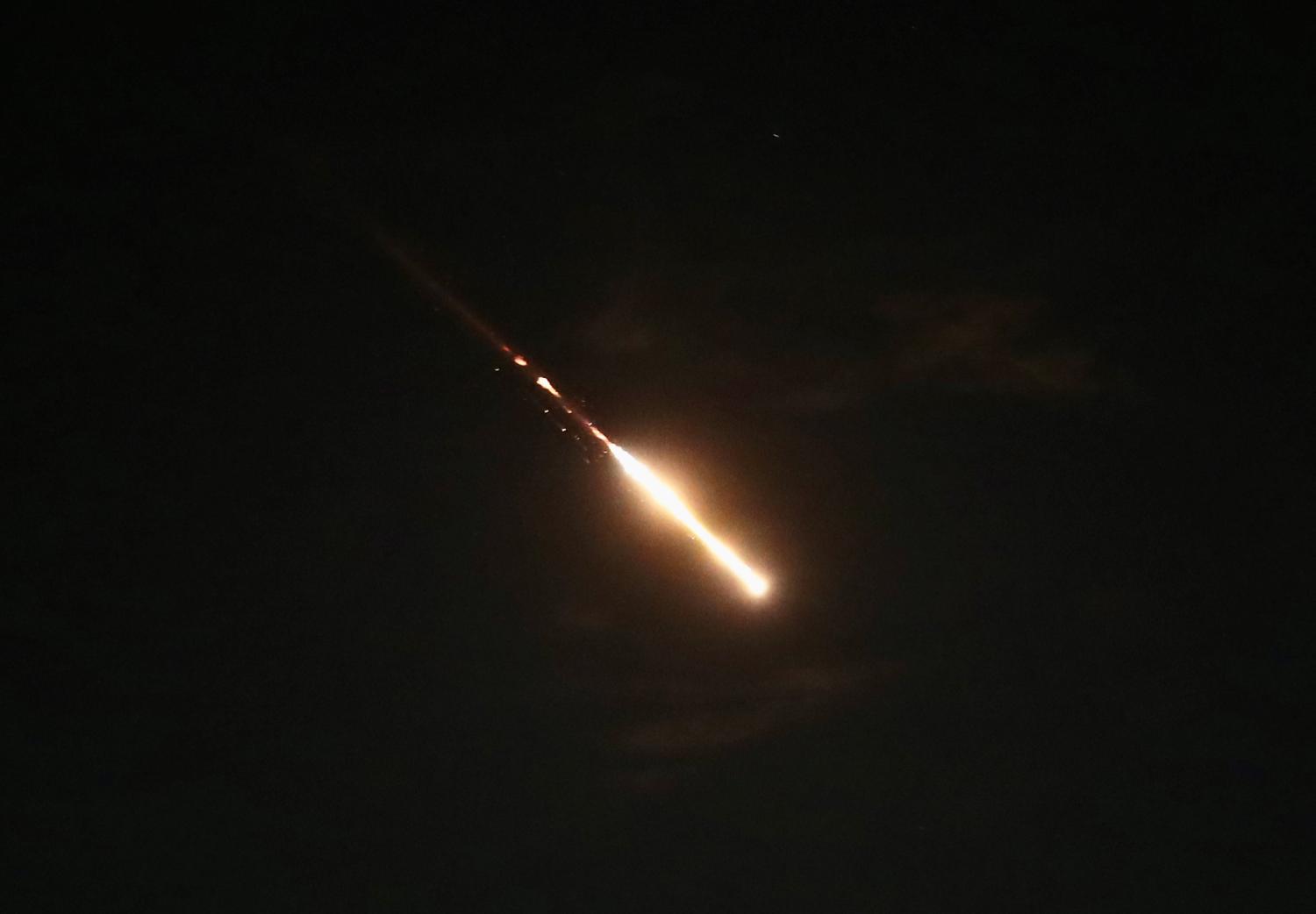Iranian Supreme Leader Ayotallah Ali Khamenei praised Iran’s armed forces for their “success” in a meeting with Iranian military commanders, after the country launched an unprecedented attack on Israel in retaliation for a suspected Israeli airstrike that targetted the Iranian consulate in Damascus, Syria.
Khamenei dismissed any discussion on whether Iran was succesful in hitting any targets within Israel, and refused to specify how many missiles had indeed reached their target.
“How many missiles were launched and how many of them hit their target is not the primary question, what really matters is that Iran demonstrated its power during that operation,” he said.
Khamenei encouraged military leaders to continue to pursue “military innovation and learn the enemy’s tactics.”
On Friday, April 19, regional and global actors were on high alert after a series of explosions hit the city of Isfahan, in the center-west of Iran.
Many have attributed the explosions to the recent cross-border exchange of fire between Iran and Israel, which began when Israeli forces targeted the Iranian consulate in Syria, killing at least 11 individuals.
According to state sources, Iran’s defense structures have taken down three small drones hovering over the city through the use of air defence batteries.
The specific type of drone shot down remains unclear, with some speculating that they belong to the category of “quadcopters.”
Quadcopters are unmanned aerial vehicles (UAVs) that use four propellers to fly, and they have been increasingly deployed by the Israeli army despite being previously restricted to use for intelligence purposes.
Several Israeli officials have announced or hinted that Israel is behind the attack, describing it as a “carefully calibrated” strike and one that is intended to send a message to Iran of Israel’s capabilities.
Sources have indicated that Israel informed the United States of its intention to attack Iran beforehand, but a recent piece by the New York Times reported that “Israel abandoned plans for a much more extensive counter-strike on Iran after concerted diplomatic pressure from the United States and other foreign allies and because the brunt of an Iranian assault on Israel soil had been thwarted, according to three senior Israeli officials.”
International Calls for De-Escalation
Following the strike, a range of international actors and state representatives called for de-escalation, including from France, Japan, Egypt, the EU, China, among many others.
A large portion of these pleas, however, failed to condemn the strikes, reverting to general, “audienceless” calls for de-escalation, in stark difference to the immediate condemnation that followed Iran’s retaliation to the bombing of its consulate.
Others, however, explicitly called out Israel on its repeated violation of international law and the United Nations Charter, such as UN Special Rapporteur on Counterterrorism and Human Rights, Ben Saul.
Beyond Security Concerns
While a number of states have issued warnings and revisited their travel advisories to and from Israel to extreme caution or discouragement, the impacts of the back-and-forths between Israel and Iran go beyond military and security levels.
Indeed, oil prices have surged following the strike, rising by more than three percent in the hours immediately after the event, primarily impacting stakeholders in Tokyo, Seoul and Taipei and mostly Eastern Asia.
At present, a number of markets continue to heavily depend on oil contracts in the Middle East, including in Iran, given its crude-rich nature, and such activities are particularly vulnerable to military escalation.
On an adjacent front, operations in the Red Sea haven’t stopped, with operations taking place between Israeli, US and other states’ militaries and the Yemeni-based Houthis and their allies. On Tuesday, the US destroyed two Houthi Red Sea drones, while the Iranian navy started escorting commercial ships to the Red Sea.
Last week, Iran’s Revolutionary Guards seized the MSC Aries, a Portuguese-flagged container ship after Tehran said it is linked to Israel.
The People of Gaza, Lebanon and the Region Continue to Suffer
Many analyses and sources from state representatives have suggested that the recent operations between Israel and Iran would end here, in anticipation of a regional agreement and a potential ceasefire.
However, realities on the ground remain dismal for the residents of Gaza, Lebanon and the region as Israeli aggression continues unabatedly. Between the United States government’s plan to send an unprecedented amount of military aid to Israel, valued at more than one billion dollars, and Israeli officials’ intentions of a ground invasion of Rafah, the genocide is expected to continue, at least for the near future.
With mainstream media often focused on grand, geopolitical analyses and reporting on potential regional agreements, local realities and the lives of millions of Arabs have been systematically invisibilized and dehumanized.


